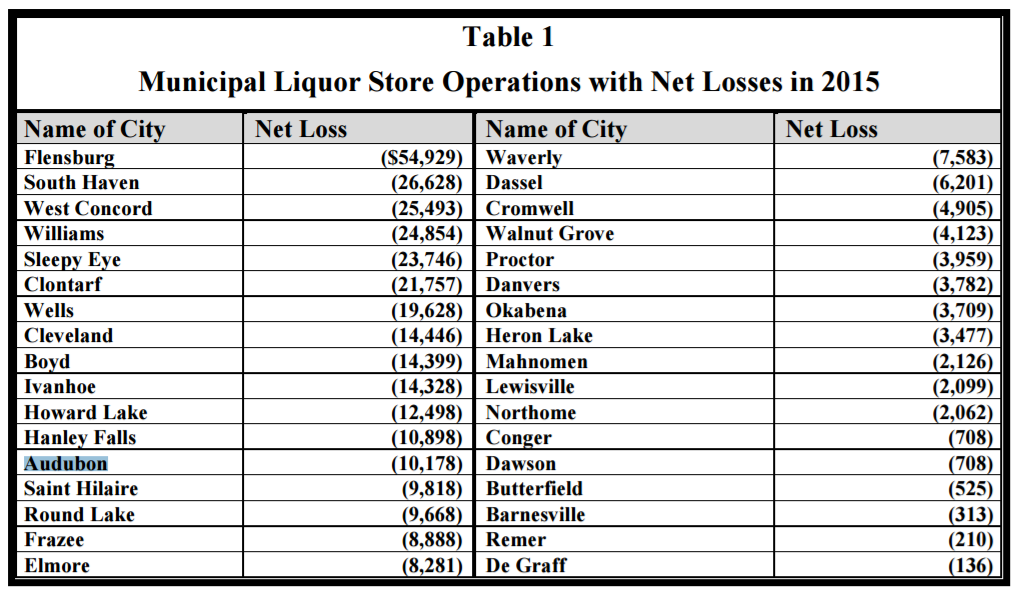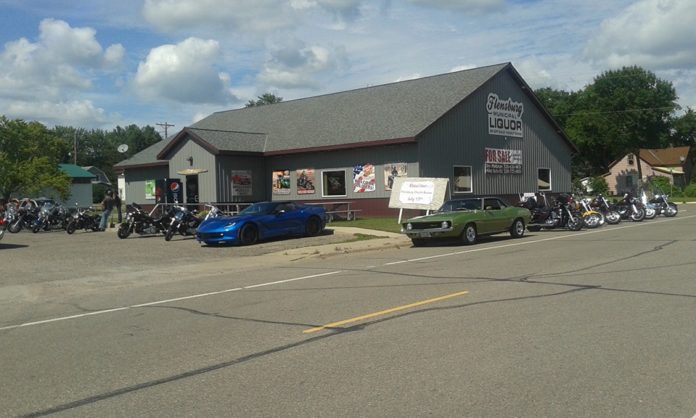Hearings required by Thursday for 29 failing municipal liquor stores to discuss future
In 2015, the 226 Minnesota city-owned liquor establishments (both on- and off-sale) generated record sales of $337.2 million: an increase of $1.6 million from 2014. The total net-profits equalled $21.3 million, which was $2.6 million less than the 2014 reported total.
A November 13, 2016 Star Tribune article reported “City-owned ‘munis’ take a nearly $3M hit in liquor profits” (David Peterson). The article blames the nearly $3 million decrease in net profits on the emergence of privately owned liquor stores like Total Wine taking a percentage of sales from the municipally-run liquor stores and bars, particularly in the Twin Cities.
However, a closer look at the data is revealing: The larger, more profitable city-owned liquor stores in the Twin Cities did see a decrease in profits overall; but the Minnesota Auditor’s office report also shows the amount of revenue liquor stores are transferring to the cities remained the same at $19.1 million. This means despite the losses, the stores are still paying cities the same while their business is bolstered through tax dollars.
The data also shows a disparity between metro area and rural municipal liquor stores. Between 2014 and 2015, Metro city-owned stores transferred $7.1 million in 2014 and $6.3 million in 2015. This change is reflective of the profit decrease seen by stores statewide.
In Greater Minnesota however, despite losing money, city owned stores actually transferred more to cities in 2015 ($12.8 million) than in 2014 ($12 million).

The 2015 State Auditor Report of Municipal Liquor Store Operations shows that 34 city-owned liquor sales establishments (on-sale and off-sale) ran under a deficit last year. 29 of those city-owned establishments are required by law to hold hearings on the futures of the city-owned liquor stores because they have run in the “red” for at least two of the past three years. Minn. Stat. § 340A.602 states that cities with municipal owned liquor stores that show losses two out of the past three years must have a public hearing to discuss the future of the stores on or before November 17, 2016.
The total amount of losses reported by the 34 city-owned stores equals $357,063, with the town of Flensburg (population 228) reporting the largest loss at nearly $55,000. Flensburg reported sales totalling $314,375, with a gross profit of $140,596. However, its operating expenditures totalled $191,470 for a loss of over $50,000 in 2015.
Lakeville had the largest total sales – $13,611,294 with a gross profit of $3,280,120 and $2,358,249 in operating costs.

The deadline for hearings to determine the future of the failing liquor stores in 29 cities is tomorrow, Thursday, November 17, 2016.









